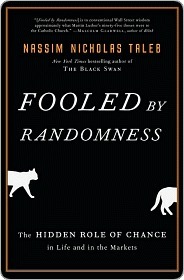Clearly he got his intuitions from computer science—he spent his entire career at Carnegie-Mellon University in Pittsburgh, which has a reputation as a computer science center. “Satisficing” was his idea (the melding together of satisfy and suffice): You stop when you get a near-satisfactory solution. Otherwise it may take you an eternity to reach the smallest conclusion or perform the smallest act. We are therefore rational, but in a limited way: “boundedly rational.” He believed that our brains were a large optimizing machine that had built-in rules to stop somewhere.
Welcome back. Just a moment while we sign you in to your Goodreads account.


